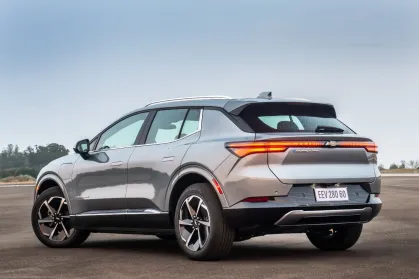In 2024, urban electric vehicle (EV) sharing programs are redefining how we navigate city landscapes. According to a recent Bloomberg Green report, the global EV sharing market is projected to grow by 35% annually, significantly reducing urban carbon footprints and easing congestion. With cities worldwide striving towards sustainable mobility, these programs stand at the forefront of a transport revolution. In this article, we’ll explore how EV sharing is transforming urban transportation, the technology behind it, and practical tips for integrating these services into your daily commute.
The Rise of Urban EV Sharing Programs
A Shift Towards Sustainable Mobility
Urban EV sharing programs are not just a trend; they are a significant shift toward sustainable mobility. With cities like Amsterdam and Oslo leading the charge, these programs aim to reduce the reliance on fossil fuels and cut down on emissions. In 2023, Electrek reported that Amsterdam’s EV sharing program reduced car ownership by 20%, illustrating a clear path to cleaner cities.
Benefits of EV Sharing:
- Environmental Impact: Reduced emissions contribute to cleaner air, aligning with global sustainability goals.
- Cost Efficiency: For urban dwellers, sharing an EV can be more economical than owning one.
- Convenience: With apps offering real-time availability, finding and renting an EV is easier than ever.
The Technology Driving EV Sharing
The technological advancements powering these programs are as fascinating as the concept itself. From smart grids to advanced battery technologies, the infrastructure supporting EV sharing is robust and ever-evolving.
Key Technological Innovations:
- Smart Grids: These allow for efficient energy distribution, ensuring EVs are charged and ready for users.
- Battery Technology: Companies like BYD and Tesla are pioneering long-lasting, fast-charging batteries to minimize downtime.
- Connectivity: Apps and IoT devices provide seamless user interfaces, making renting an EV as simple as a few taps on a smartphone.
How to Choose the Right EV Sharing Program
Factors to Consider
With a plethora of options available, choosing the right EV sharing program can be daunting. Here are some factors to consider:
- Availability: Check if the program operates in your area and has sufficient vehicles.
- Pricing Model: Compare costs between per-minute, hourly, and daily rates.
- Vehicle Options: Some programs offer a range of vehicles from compact cars to larger models.
Top EV Sharing Programs in 2024
- Zipcar: Known for its extensive network, Zipcar offers various EV models and flexible pricing.
- DriveNow: Operating in multiple cities globally, DriveNow integrates BMW’s i3 into its fleet for eco-conscious drivers.
- Car2Go: With a focus on smart cars, Car2Go provides a compact and efficient option for city travel.
Practical Tips for Using EV Sharing Services
How to Charge the EV
Charging an EV might seem intimidating, but it’s straightforward with urban EV sharing programs. Most services partner with local charging stations, often providing free or discounted charging.
- Find Charging Stations: Use apps like PlugShare to locate nearby stations.
- Plan Ahead: Always check the vehicle’s charge level before starting your journey.
Where to Sign Up
Signing up for an EV sharing service is quick and easy. Most programs require a valid driver’s license and a credit card. Simply download the app, register, and you’re ready to go.
- App Store: Download the app for your chosen service from Google Play or the Apple App Store.
- Online Registration: Some services allow you to sign up via their website for added convenience.
The Future of Urban Transport
Urban EV sharing programs are more than a passing phase; they represent the future of city transport. As technology advances and cities continue to embrace sustainable solutions, these programs will likely expand, offering more vehicles and broader coverage.
What to Expect in the Coming Years
- Autonomous Vehicles: Integration of self-driving technology could further simplify EV sharing.
- Enhanced Infrastructure: Expect more charging stations and improved grid systems.
- Increased Adoption: With growing environmental awareness, more cities will adopt EV sharing programs.
In conclusion, urban EV sharing programs are revolutionizing city transport in 2024 by offering sustainable, cost-effective, and convenient travel options. As these programs continue to evolve, they promise to play a crucial role in creating cleaner and more efficient urban environments. Are you ready to be a part of this transport revolution? Sign up for an EV sharing program today and contribute to a greener future!

